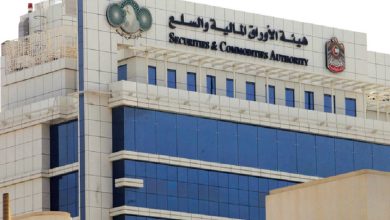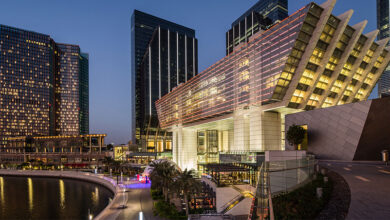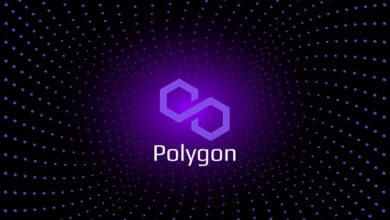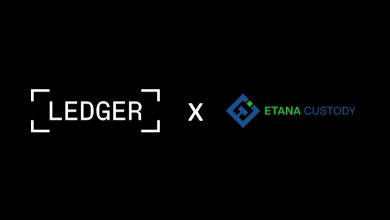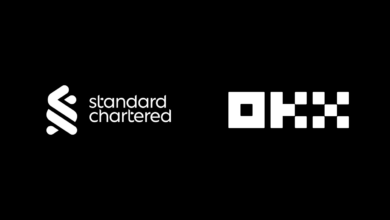Dubai Land Department to expand its Blockchain solution to provide property transfers and Smart Mortgages

During UNLOCK Blockchain Forum which took place on the 14th-15th January 2018 in Dubai, Blockchain in the real-estate industry was a topic of much interest given the fact that real-estate plays a crucial role in Dubai’s economy. The Dubai Land Department had announced in October 2017 its own Blockchain project.
Yousuf Dashqooni, Head of Security, Wasl, one of the biggest asset Management groups in Dubai discussed their recent Blockchain implementation, “We expect more than operational efficiency which already exists by using multiple technologies. Our expectation for Blockchain in real estate is to simplify the process, remove redundancy and give a completely new experience to the customer.”
Wasl was in fact part of the first Blockchain use case in real estate, officially launched in 2017 during GITEX with multiple government entities, DLD and Emirates NBD from the private sector. It enables paperless property leasing through the integration of digital identity, online KYC (Know-Your-Customer) and smart contract for payment on the Blockchain.
Challenges and Future Steps
Given the large scope of the real estate sector in terms of classifying customers, putting the real estate community onto the Blockchain requires tremendous effort, however, according to Khalifa Ahmed Alzeraim Alsuwaidi, CEO, Emirates Real Estate Solutions, ICT solutions provider and a subsidiary of Dubai Land Department, “We have the support of Smart Dubai utilizing KYC (know your customer), and the support of local banks. Our payment solution is being utilized by more than 500 property developers, more than 5000 brokers and more than 3000 landlords inside Dubai.”
For 2018, Alsuwaidi states, “We will be addressing the challenge of conducting property transfers. Once the listing service is integrated into the Blockchain real-estate platform, any transaction that occurs, be it registering a lease contract, or property transfer will reflect directly onto the listing service and will be delisted.”
Alsuwaidi also adds that in 2018, “we will work with the banking sector to create smart mortgages where banks will also be able to directly integrate with Blockchain to mortgage and de-mortgage without the need to even visit DLD or the property registration offices across Dubai.”
Real Estate, the Environment and Data Collection
A real-estate Blockchain solution does not only create better efficiencies and lowers the cost of operations but it is also a way to create a sustainable environment. Today, Real Estate is closely linked to environmental degradation via various channels such as increasing CO2 emissions, waste and energy consumption.
As mentioned by Michiel Frackers, Co-Founder, Bluenote (a startup offering a Blockchain Solution to a Zero Emission World), the UN estimates that commercial real estate creates 35% of global warming, as it is the largest singular source of CO2 emissions. The reduction of energy spent by commercial buildings unlocks tremendous value, a reduction of 30% unlocks a value of $600 billion. To address that, Bluenote aims to increase the return on investment for real estate owners and investors by reducing energy spent over commercial real estate through Blockchain. As Frackers explains, “Through Blockchain, you can reach anonymous sharing of data and verification of data by pulling it up against simulation models and comparing it to others. And this is what Bluenote is trying to do, as it allows people to upload their data on the Blockchain, and compensates them for doing so with bluenote tokens.”
Dashqooni pointed out that Dubai is already working on this. He explained “We took the step by evolving IoT across multiple buildings, as a Proof of Concept to reduce energy, enhance services and reduce operation costs.” Dashqooni adds, “One of the biggest challenge we faced in Iot was collecting data across hundreds of buildings and analyzing it. Data veracity is the biggest challenge and I believe Blockchain can be the backbone for that.”
Elaborating further on the integration of data into Blockchain, Alsuwaidi mentioned “In 2018, we are fusing open data with blockchain where we can provide necessary data to the community.” He added, “The first step would enable the governmental sector to use the data through its integration with Smart Dubai. In fact, Smart Dubai is building the blockchain network which will help all governmental departments to exchange the right amount and type of data. We are also looking at how we can utilize building information management into the blcockchain, and how we can make this data available for public use.”
Giving Global Addresses to real-estate
NaviAddress, a Blockchain startup is developing a platform which provides unified Digital ID for any place in the real and virtual world. Dmitri Moiseev, CEO, Naviaddress, stated, “We provide addresses for those who do not have ones, which are estimated right now at 4billion people. There is also a huge waste in delivery and e-retail industry due to mistakes in the addressing verification.”
In closing, the real-estate sector is set to gain a lot from the introduction of Blockchain. Blockchain will not only streamline the process, decrease cost of transactions, and open new possibilities but it will also serve to create a sustainable environmentally friendly real-estate sector with the help of developers, tenants and owners.

